Better soil with biofumigation.

Ethiopian Cabbage is quick maturing and makes an excellent cover crop! It is known for its leafy greens and flowers that attract beneficial insects, while naturally suppressing pests and disease.

Suppress plant pathogens and diseases, sterilize weed seeds

Incorporate within 40 days, excellent heat and drought tolerance

Taproots to promote water infiltration and nutrient cycling
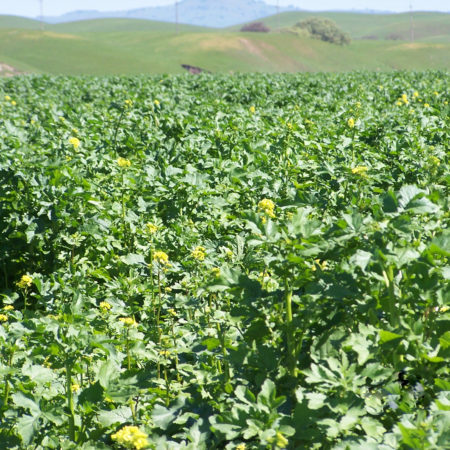
Biofumigation is pest and disease suppression by glucosinolate (GSL) containing plants.
Biofumigation is defined here as pest and disease suppression by Glucosinolate (GSL). Research has shown it is now possible to reach isothiocyanate (ITC) levels with GSL producing plants equal to or greater than synthetic fumigants.
This makes Ethiopian Cabbage an environmentally positive fumigation alternative, as well as an option for organic farming.
Ethiopian Cabbage has been successfully
used as a biofumigant rotation in:
Potatoes
Vegetable/Row Crops
Vineyards
Flower Bulb & Seed Farming
Organic Farm Rotations
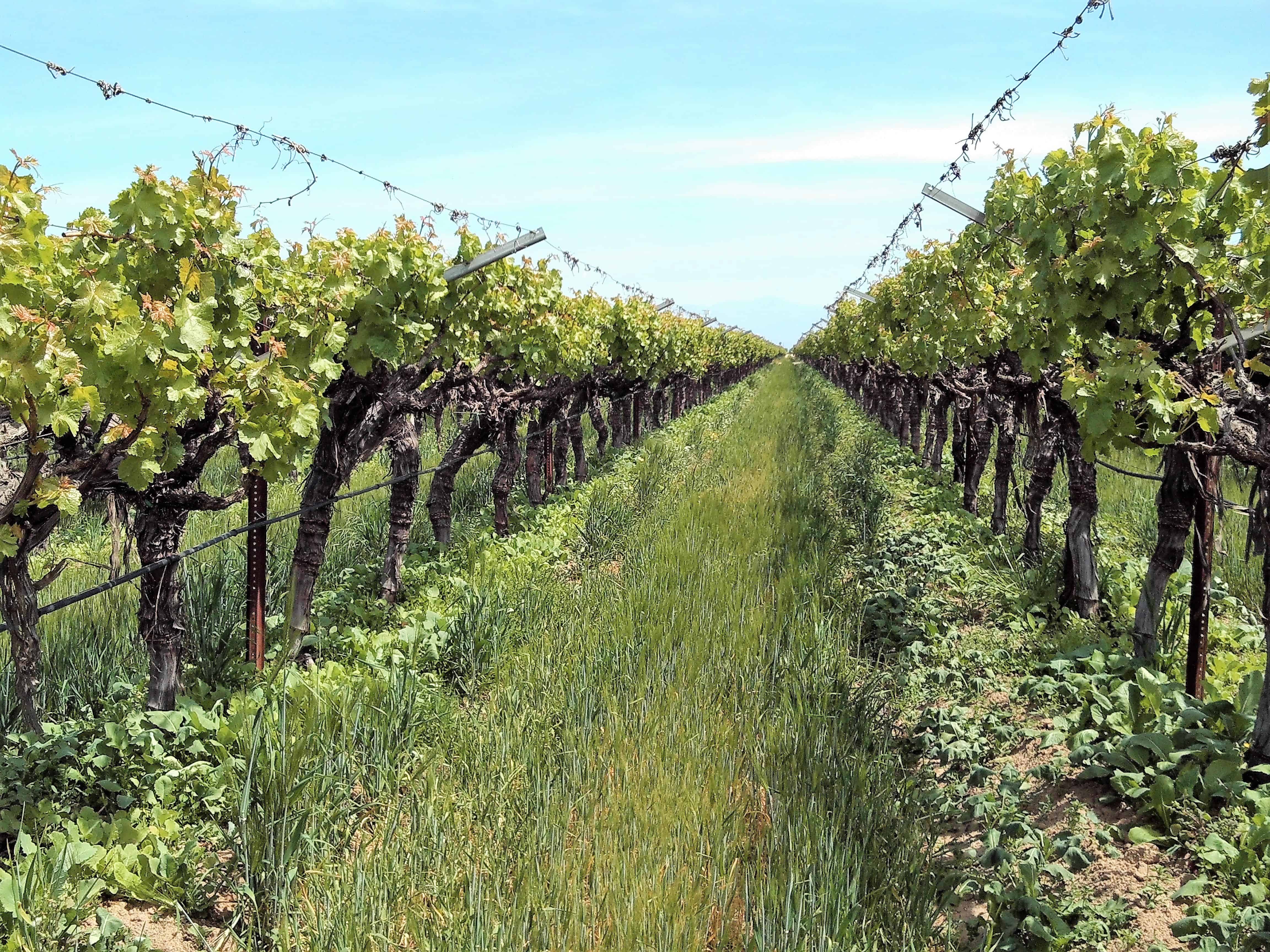
Steps to Successful Biofumigation
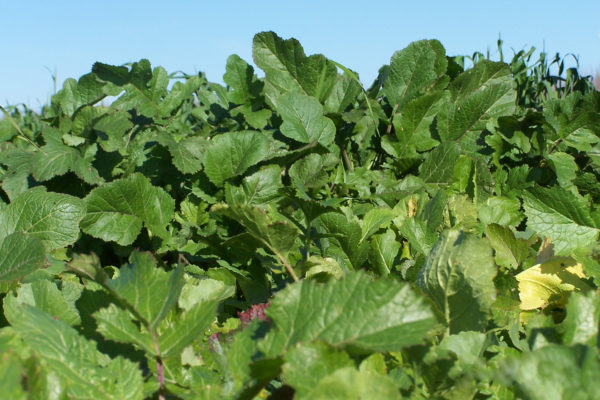
Planted April-September; 40+ days growing time for maximum ITC levels in leaves and stalks.
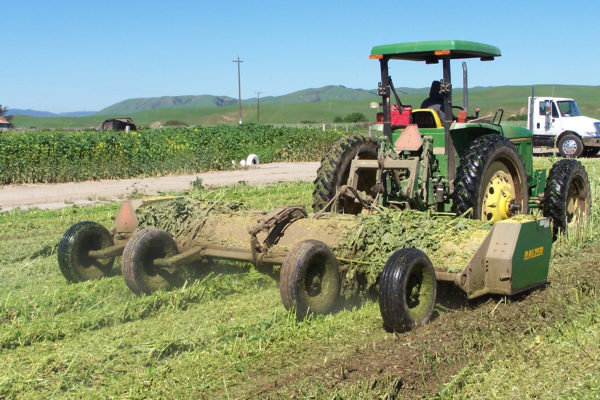
Complete multiple passes with shredding implement to macerate plant cell walls and release GSL. Immediately incorporate into the soil.
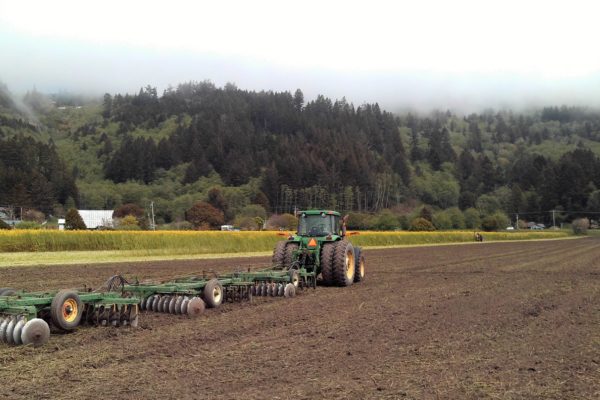
The next crop can be planted in 10-12 days post-incorporation.
Soil Borne Disease Control
Weed Seed Suppression
Nematode Control
Environmentally Positive
To find out how
PG584 Ethiopian Cabbage
can work for you:
email Cher Gillson,
or contact your local
PGG Seeds dealer.

